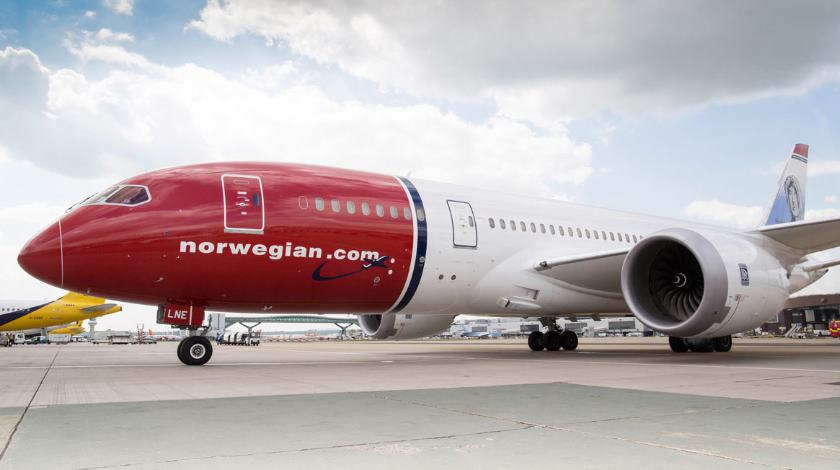Photo: e-spaces.eu
Reading Time: 2 minutesThe Department of Transportation (DOT) has denied a bid by Norwegian Air to fly to the U.S. after facing months of scrutiny from labor groups, the aviation industry and lawmakers on both sides of the aisle.
The company applied for a foreign air carrier permit for one of its subsidiaries, Norwegian Air UK, in order to gain access to more airports covered under the U.S. and European Union’s Open Skies agreement.
The low-cost air carrier wanted to conduct scheduled and charter flights to the U.S. from London’s Gatwick Airport, and said it needed more route flexibility in order to offer cheaper transatlantic flights.
The DOT said in its order, posted on Regulations.gov, that it rejected the application because the request raises “novel and complex” issues and that it would not be in the public interest to grant the exemption.
But in April, the agency tentatively approved the air carrier’s application for its other subsidiary, Norwegian Air International, which is based in Ireland.
Critics, who argue the company is attempting to skirt more stringent Norwegian tax and labor laws, are hoping the rejection of Norwegian UK’s permit is a sign that the DOT will not move forward with approving Norwegian Air International’s application.
“The DOT’s decision to deny an exemption for Norwegian UK is particularly important as the department continues to consider the Norwegian Air International (NAI) foreign air carrier permit,” Sara Nelson, president of the Association of Flight Attendants, said in a statement on Thursday.
“Norwegian’s attempts to obtain foreign air carrier permits for different subsidiaries is a purposeful effort to undermine strong labor laws across the world.”
Officials for the air carrier maintain it will not use any Asian-based cabin crew on transatlantic flights, and says it chose to establish itself in Ireland for access to future traffic rights to and from the EU and to secure better aircraft financing rates.

